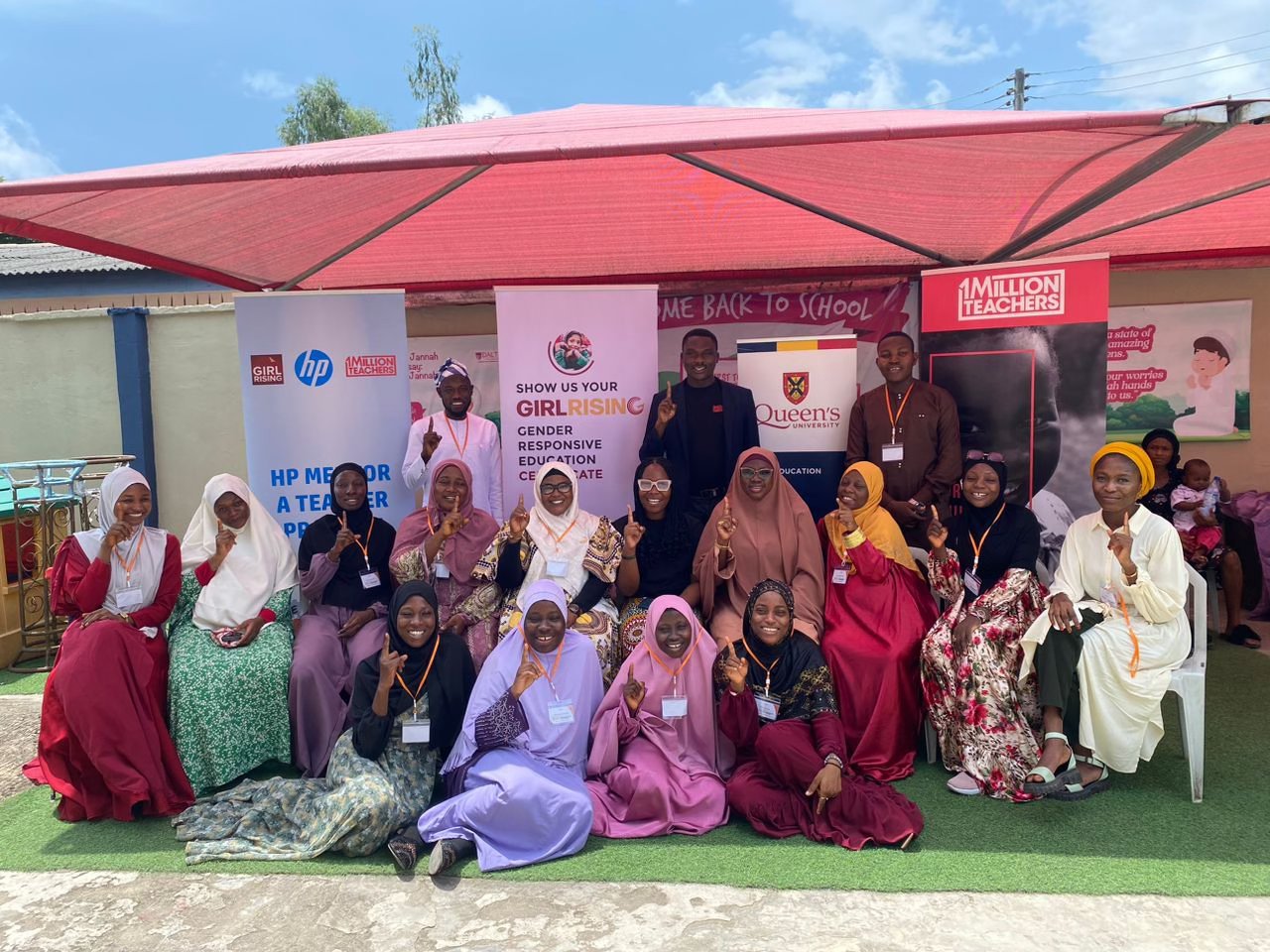
Empowering Educators, Transforming Futures: Join Us in Making History!
As we embark on this exciting year, we invite you to join the largest gathering of educators in the world—the Let There Be Teachers Conference in Lagos!
📅 Date: September 20, 2025
📍 Venue: Tafawa Balewa Square, Lagos
Over 60,000 teachers will come together to connect, collaborate, and celebrate the vital role educators play in shaping the future.
This event is more than just a conference—it's a celebration of YOU. It’s a powerful reminder of the difference you make far beyond the classroom.
Don't miss out on this historic opportunity to:
🎯 Network with educators from around the world.
🎯 Upskill and enhance your teaching expertise.
🎯 Rebrand and boost your professional image.
🎯 Celebrate your importance and collective impact.

Become a Teacher
Partner With Us
Support Our Work
We empower educators worldwide to deliver inclusive, gender-responsive education in under-resourced communities. Our mission is to cultivate a cadre of skilled education changemakers, fostering grassroots improvements through innovative approaches. Utilizing technology and peer-to-peer support, we scale teacher training. Originally focused on education challenges, 1MT has transformed into an Education Advisory Hub and Implementer, collaborating with governments, private, and development organizations in challenging, under-resourced regions globally. We address these in what we call “The Triple Challenge”.
-
Develop pathways into the profession using accessible and engaging rewards-based programs.
-
Combine universally valuable soft skill training with locally-approved curriculums to ensure strong, tangible learning outcomes for students.
-
Create passionate lifelong learners using both intrinsic and extrinsic factors such as salary and community recognition.
Modern Solutions to Long Standing Challenges
Our programs are built on what’s always made a great teacher, amplified by modern tools. By blending scalable digital solutions with community-based leadership, we’re tackling the teacher gap at a scale never before attempted.
A Global Mission, Close to Home
Co-founders Hakeem Subair and Rizma Butt are committed to creating a world with enough high-quality teachers to ensure all children can access a proper education.
Today, we’re a globally recognized programming partner, dedicated to creating enough high-quality teachers to ensure all children can access a proper education.

“The single greatest effect on student achievement is not race, it is not poverty – it is the effectiveness of the teacher.”
Harry Wong
Empowered Teachers Need Support
Impact Stories & Blog
Find out how 1MT is making an impact and building resilience in local communities around the world.














Introduced to 1 Million Teachers, I swiftly progressed from a sponsorship inquiry to becoming a Blackbelt Mentor. Completing the program in two weeks, I graduated as one of Kenya's first mentors. The program transforms, enhancing leadership and job interview skills, and fostering confidence through its valuable materials.